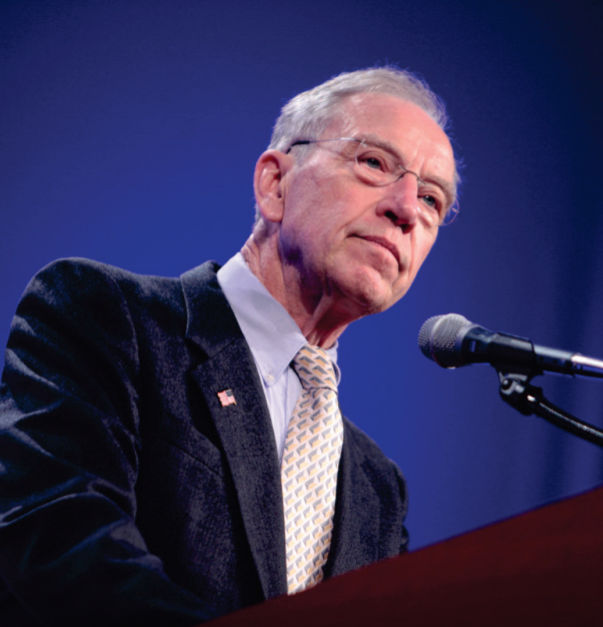President Trump recently announced his support for a bipartisan criminal justice reform bill, the First Step Act. This act would lower lifetime mandatory minimum sentences for nonviolent drug felony convictions. The bill also gives judges more leeway when sentencing nonviolent criminals; it would discard mandatory minimums and the disparity between crack and cocaine (historically, crack sentences were required to be more punitive, even though the only difference is baking soda, meaning mandatory minimums disproportionately punished low-income offenders). This act would address such disparities and also extend opportunities for inmates to reduce sentence lengths with programs such as job training. Support for this bill is a surprising stance from the president considering his hard-on-crime campaign promises, but we should give credit where credit is due: it is a step in the right direction. It is also a refreshing bipartisan collaboration in our current political atmosphere.
The desperate need for criminal justice reform has been recognized for years, but partisanship makes reform difficult. The U.S. has the world's highest incarceration rate. According to The Hill, from 1980 to 2015, taxpayer spending on federal inmates has increased from $330 million to $7.5 billion. The proposed legislation could lead to a net reduction spending of $729 million over the next 10 years. It is important to note, however, that the First Step Act would affect under three percent of the 181,000 inmates currently in federal prisons. The majority of the country's 1.51 million inmates are held in state prisons, where the bill would not be mandatory.
The bill has faced criticism from both sides of the political spectrum. Conservative critics say it gives too many rights to criminals and too much power to judges. There is also wording in the bill that might need to be revised, as it could unintentionally allow individuals convicted of sex crimes to gain early release. Progressive critics claim that the bill is not reformative enough, yet still, the bill is backed by both Republican and Democratic politicians.
The Republican-dominated House passed its version of the bill with broad, bipartisan support. It stalled in the Senate, however, where majority leader Mitch McConnell controls the agenda and seems to have no intention of changing his mind. Senators that favor the bill are eager to pass it during the lame-duck session and fear that any delay to its passage will reduce its chances of success. This is because the House will be controlled by Democrats come January, and they will likely push for more comprehensive reforms. McConnell is likely stalling the passage of the bill intentionally with the knowledge that a delay could lead to the death of the bill.
Still, the First Step Act is an indication that we are moving in the right direction. Hopefully, it will carry its momentum, though it faces an uphill battle in congress and more reform is needed. Private prisons need to be phased out, and state prisons also need reformation. First Step Act is progress, however, and any progress is significant regarding such a pressing issue as mass incarceration. As citizens of a country facing such high incarceration rates, we should keep our eyes on Capitol Hill to see how our government chooses to address criminal justice reform, both now and in the future.
